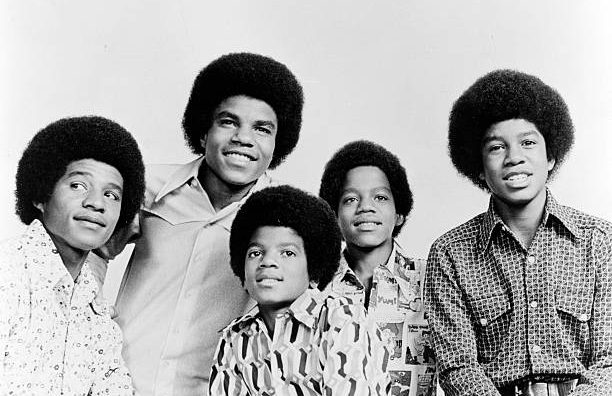When the Supremes’ Diana Ross introduced the world to five singing siblings from Gary, Ind., she lit the fuse on what would become one of America’s defining and most enduring musical families. Since 1969, we’ve known the Jackson 5 for a series of impeccable Motown Records singles spearheaded by an inchoate, irrepressible Michael Jackson: there’s the grandiose introduction (“I Want You Back”), the wistful ballad (“Never Can Say Goodbye”), the uptempo burner (“The Love You Save”), and then there’s “ABC” — the crown jewel among the group’s number one hits. More than any of their songs, “ABC” captures everything that made the Jackson 5 such a unique force in pop: its pace is flawless, its energy is irresistible, and its narrative hinges on a creative twist that only an 11-year-old virtuoso frontman could have pulled off.
The story of the Jackson 5 starts with the unfulfilled dreams of a parent. Steelworker Joe Jackson gave up on his musical aspirations (and hopes of achieving fame as a boxer) to start a family, ultimately raising nine children with wife Katherine. One night in 1964, Joe discovered his three oldest sons — Jermaine, Sigmund (a.k.a. “Jackie”) and Toriano (“Tito”) — playing the guitar from his days in an R&B band called the Falcons; intrigued by his sons’ musical gifts, Joe recruited a pair of friends to back the young trio, dubbing the group the Jackson Brothers and rehearsing them under his disciplinarian hand. As the act progressed from school talent shows to city-wide theatrical talent showcases, Joe’s friends were replaced by his even younger sons, Marlon and Michael; Joe eventually rechristened the band the Jackson 5 Singing Group, and after a long-forgotten 1967 studio session at Chicago’s One-derful Records (the subject of an exhaustively-researched Chicago Reader article from 2009 by pop historian Jake Austen), he negotiated a deal with local Steelhead Records to issue their first commercially-available single, “Big Boy,” at the dawn of 1968.

After Ross, Gladys Knight and the Vancouvers’ Bobby Taylor all independently recommended the Jackson 5 to Motown founder Berry Gordy Jr., he auditioned the group in the summer of 1968. At the time, Motown’s cultural clout was reaching its zenith, and Gordy was hungry to guarantee the label retained its cachet as “The Sound of Young America.” The Jackson 5’s arrival at Motown dovetailed with the creation of a songwriting and producing team dubbed The Corporation, which brought together Deke Richards, Freddie Perren, Fonce Mizell and Gordy himself. The Corporation is essential to the success of the Jackson 5’s biggest singles, including “ABC,” which closely mirrors the bouncy chorus of its immediate predecessor, the group’s debut “I Want You Back,” a Billboard Hot 100 chart-topper in early 1969 thanks in part to appearances on the ABC network’s Ross-hosted Hollywood Palace and CBS’s Ed Sullivan Show. (Motown’s public relations department went on to claim Ross discovered the Jacksons, even titling their debut album Diana Ross Presents the Jackson 5.)
With its truncated intro and immediate leap into the verse, “ABC” feels like a subtle upgrade of “I Want You Back,” and boasts a greater sense of economy: its “do-re-mi” chorus is also far simpler than the journey of notes “I Want You Back” embarks on, and this simplicity makes it both catchier and easier to sing along with. Besides a sudden breakdown — which derives its party-like atmosphere from the solitary clang of the ride bell — “ABC” remains simple from start to finish, all repeated chords and three-note steps. Of course, songs that sound simple often hide complex tricks: “ABC” operates not in D# major but in D# mixolydian, a scale nearly identical to the major, but with a C# instead of a C — and that twist alone adds gigantic personality to the track. Notice how Michael hits that C# as he ascends upward in the second half of the verse, and also how the dual piano chords that form the song’s melodic foundation anchor themselves around that shift. The two chords don’t just repeat, but alternate from 1-2-1 to 2-1-2, creating a two-measure phrase that instantly eliminates the risk of monotony a repeated two-chord structure might otherwise engender.
Perren (who later went on to pen Gloria Gaynor’s smash “I Will Survive”) came up with the clever trick of contextualizing the puppy-love spirit of “ABC” using school teacher lingo, having previously worked as an educator himself, while Michael’s vocal projects confidence in the face of inexperience — a schoolboy narrator with the poise to hand a love note directly to its recipient instead of slipping it into their school locker. His soprano, soon to be hobbled by puberty, adds the extra element of realism that augments the single’s bubbly bounce: elementary instructions like “A-B-C” and “1-2-3” are salient to the youngest of listeners and familiar, even nostalgic, to the eldest. Had the song been sung by anyone older, it likely would sound infantile, maybe even creepy; instead, Michael injects “ABC” with boundless energy — the kind only young people can generate. (If only the rest of the Jacksons were backing him here. Gordy insisted on hiring studio musicians to maintain quality control, and while Motown’s strict policy against crediting such musicians means we’ll never know specifically who was responsible for sculpting that energy, KORD’s in-house musicologists have determined that’s Wilton Felder on bass; isolate the “ABC” bassline in the app to decide for yourself.)

The most brilliant facet of “ABC” is its structure, which works in three parts: Michael’s intention to educate on the verse, followed by a two-part chorus that’s both lesson and reinforcement. The bass and lead guitar back up Michael’s words with synchronized melodic lines that start low and enter an octave above: when the “A-B-C, it’s easy as 1-2-3” chorus is introduced via that three-note hook, listen closely to the piano as it jumps up an octave right after the hook, before returning back down. It’s as if the instrument is a student — an audience surrogate, perhaps –- following the band’s instruction and imitating their octave jumps. As the chorus enters its second phase, the piano stays in that higher octave, transformed and energized by the lesson.
But what, exactly, is as “easy as 1-2-3”? The specifics of “ABC” don’t matter as much as the sentiment, and that’s a trick many great pop songs pull off. Love songs, like poetry, often translate carnal appetite into something softer and more transcendent, and that softening helps songs with specific vectors of desire resonate with as many listeners as possible. Some artists (Elvis Presley, Madonna) find success in flaunting their sexuality, while others (Paul McCartney, Paul Simon) achieve it by traveling in the opposite direction. Michael Jackson would eventually be crowned the King of Pop because he somehow encapsulated both dimensions, and as an adult, many of his biggest songs rode the line between lasciviousness and Jackson 5-era youthful candor with a signature deftness.
It’s not just the songs, either (although many of them replicated the same neutered yearning featured on “ABC”). Both Michael’s image and the androgyny of his adult voice contributed as well, and until the troubling details of his private life overshadowed everything else, his music possessed the same inherent G-rated quality — entertainment suitable for (and fully appreciated by) listeners of all ages. That aspect of his artistry might have first surfaced on “I Want You Back,” but it was idealized on “ABC,” a song about sexual desire framed in pre-adolescent terms.
If “I Want You Back” posited the Jackson 5 as an act capable of topping the charts, the equivalent rise of “ABC” proved that the momentum behind them was not a fluke: their first four singles reached number one on the Billboard Hot 100, establishing the Jacksons as a cultural phenomenon and revitalizing Motown’s commercial potency. Though the Jackson 5 quickly became the label’s highest-selling group, even headlining their own Saturday morning cartoon series, their initial success was short-lived. Over the next three years, The Corporation dissolved, Michael’s voice shifted into the tenor he would refine over the next two decades, and contentions over royalty earnings ultimately caused Joe Jackson to pull the group from Motown altogether (everyone except Jermaine, that is, who stayed with the label as a solo artist after marrying Gordy’s daughter, Hazel). With youngest brother Randy joining the lineup, the remaining brothers continued performing as the Jacksons, transitioning into disco but never topping the Hot 100 again.

As a collective, however, the Jackson family continued to exert an outsized influence on the music industry, first with Michael’s reinvention as a zeitgeist-defining pop icon under producer Quincy Jones’ guiding hand, then with the emergence of youngest sibling Janet Jackson, whose subversively sensual fusion of pop and R&B dominated both charts during the 1980s and 1990s. Michael’s solo career in particular fundamentally changed not just the industry but the culture at large: his ubiquitous presence on the nation’s airwaves signaled a new era of Black artistic expression, especially in the realm of music videos, with clips for songs like “Billie Jean” and “Thriller” breaking down MTV’s racial barriers and establishing the cable network as a viable platform for ambitious artistic statements as well as an avenue for revenue. The sheer notoriety of Michael’s presence also helped the Jacksons notch a platinum-selling album for new label Epic Records with 1984’s Victory, the only full-length release to feature all six Jackson brothers together as an official group.
An act on the cusp of adulthood will always remain a short-sighted commercial prospect, even if it overcomes its innate novelty. The difference between the Jackson 5 and every other group of its ilk comes down to the precociousness of a performer like Michael Jackson. As if in preparation, Motown forcibly capped his juvenescence with the maudlin covers and incongruous adult fare of his early solo records; in contrast, “ABC” sounds not only appropriate but custom-tailored for him and his brothers, and that’s why it stands tall as the Jackson 5’s greatest moment. “I thought [‘ABC’] was so good,” Michael recounted in his 1988 memoir Moonwalk. “I remember feeling this eagerness to sing that song, to get in the studio and really make it work for us.”

ABC (KORD-0032)
Related songs:






